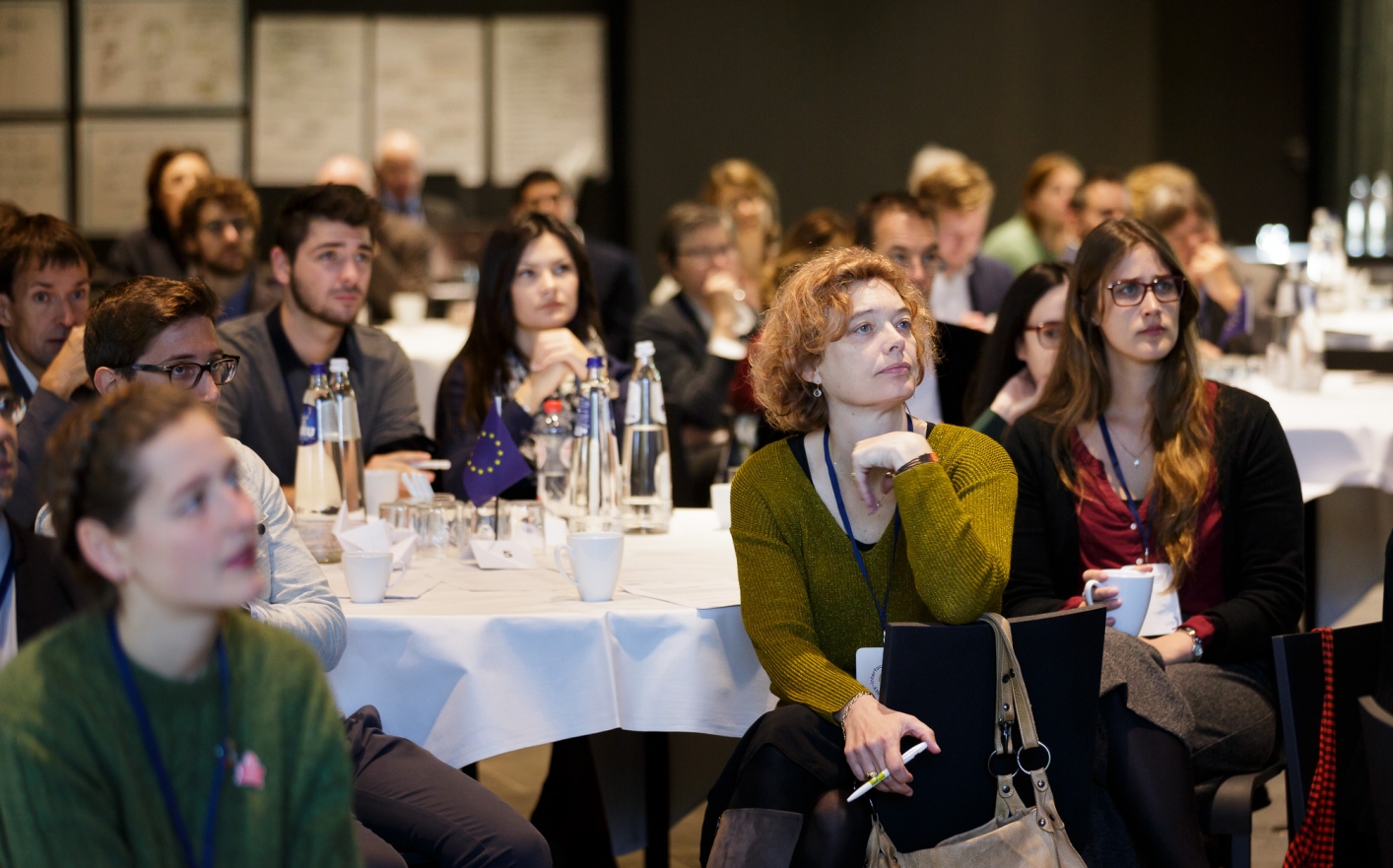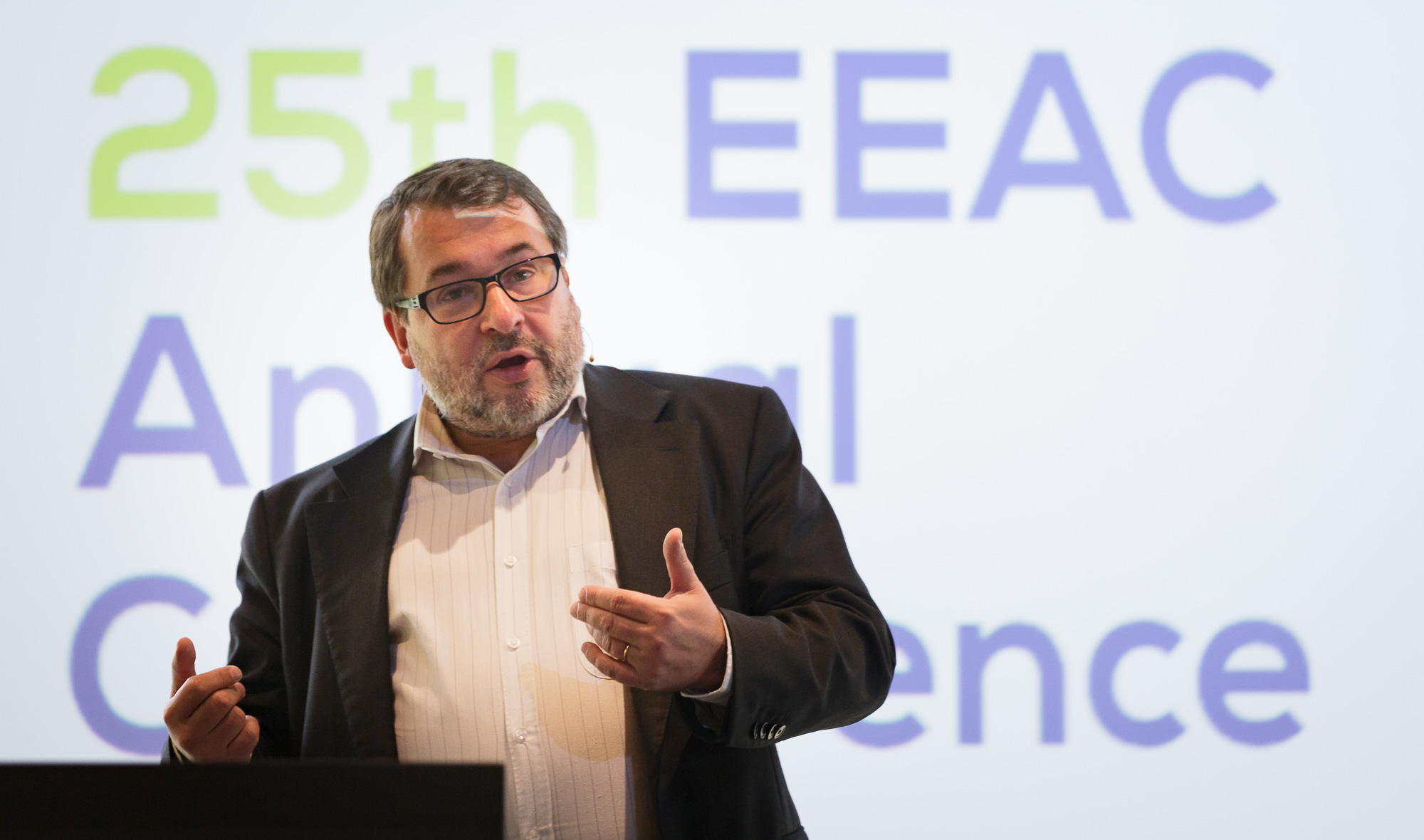
European diplomacy, science-based policy advice and political commitment made the 2030 Agenda for Sustainable Development and also the Paris Agreement possible. The participants concluded that for the implementation of the agreements more is needed: a new interface between science, policy and society.
25 years after the Maastricht Treaty
The conference took place 25 years after the Maastricht Treaty was signed. Europe can look back on 25 years of successful environmental and sustainable development policy-making.
Message from Maastricht: how to drive forward the 2030 Agenda in a changing political and societal atmosphere?
25 years after signing the Maastricht Treaty, we are also witnessing a changing political and societal atmosphere. Established forms of scientific expertise and policy advice are more frequently challenged by critical citizens or even by the government institutions themselves.
The following conclusions from Maastricht, reached by the EEAC and the national member councils, are put forward to the European Commission, responsible for the implementation of the 2030 Agenda (17 SDGs).
- In environmental and sustainable policy a shift is taking place from top-down regulation to governance in networks. The EEAC and her national member councils, often consisting of both scientists en practioners, are well-equipped to follow this change and work beyond borders, silos and institutional barriers. The councils are ready to keep playing their role in advising on environmental and sustainability issues.
- The implementation of the policy commitments for sustainable development requires not only strong evidence base, but also increasingly acknowledging experience coming from society: citizens, business and local communities. One way to maintain an evidence-based approach while at the same time ensuring greater legitimacy of knowledge is to re-think the interfaces between science and policy. The councils are committed to applying e.g. more transparent approaches to policy advice, more co-creation between scientists, policy-makers and citizens, new types of institutions to handle these co-creations (e.g. platforms such as IPCC and IPBES), co-regulation (e.g. round tables), and methodologies in which citizens themselves conduct research or contribute to scientific evidence.
- In a similar vein, the implementation of the Sustainable Development Goals (SDGs) requires inclusive, effective and accountable institutions. Renewed and shared inspiration is needed for European cooperation that goes beyond borders, silos and institutional barriers in order to drive forward the 2030 Agenda.
- Circular economy, water, food and land use, sustainable finance and energy & climate are amongst the most challenging issues in the light of the 2030 Agenda. Therefore, these issues are priorities on the research agenda of the member councils of the EEAC.

Speech by Gilles Gantelet, EU Commission "We need less speeches, less beautiful talks, more actions". - foto Fred Ernst
Organisation
The Dutch Council for the Environment and Infrastructure (Rli) organised this EEAC conference in association with the Environmental and Nature Council of Flanders (MINA), the Belgian Federal Council for Sustainable Development (FRDO-CFDD), and the Luxembourg National Council for Sustainable Development (CSDD).
More information about the conference, programme and speakers
View the youth representatives’ contributions to the conference, such as essays and vlogs
Shortly an online magazine will be published with an impression, interviews and results from the conference.
More information
For more information please contact Folmer de Haan, project leader, e-mail f.w.dehaan@rli.nl